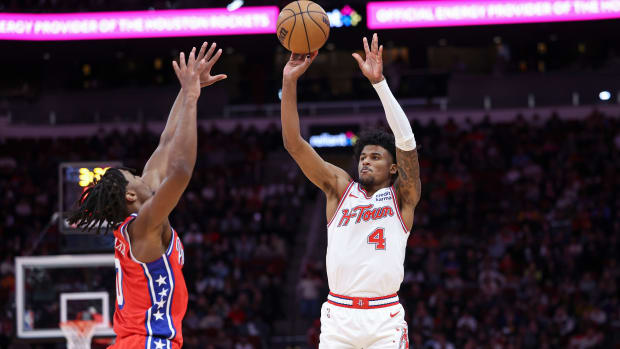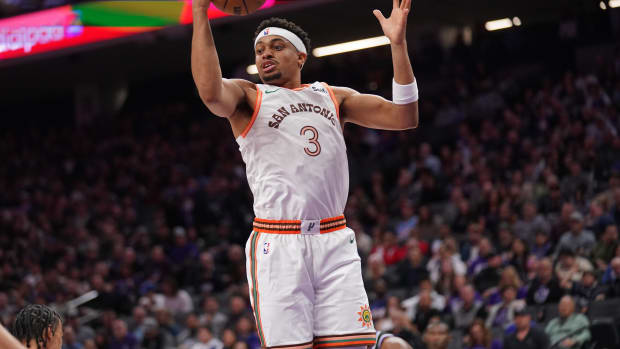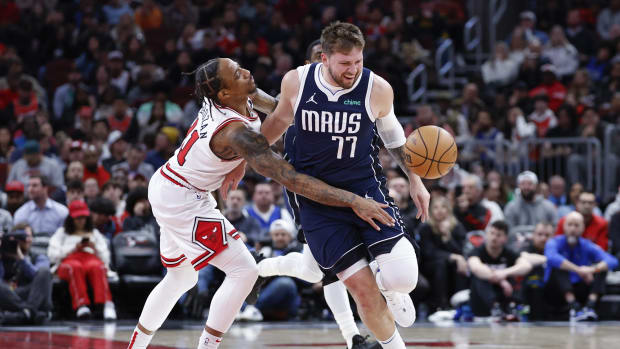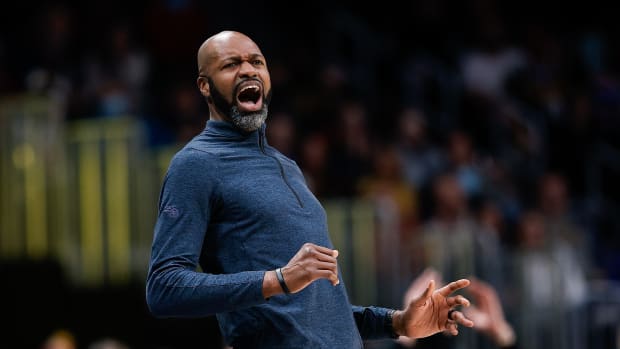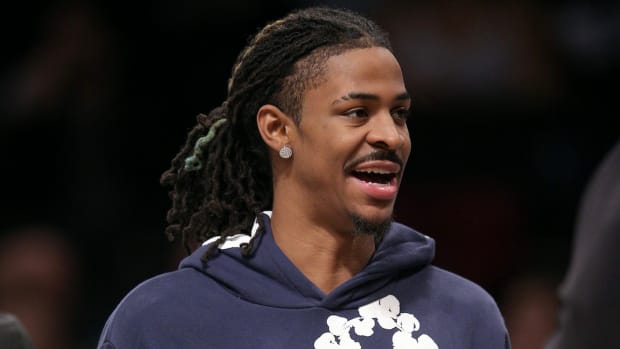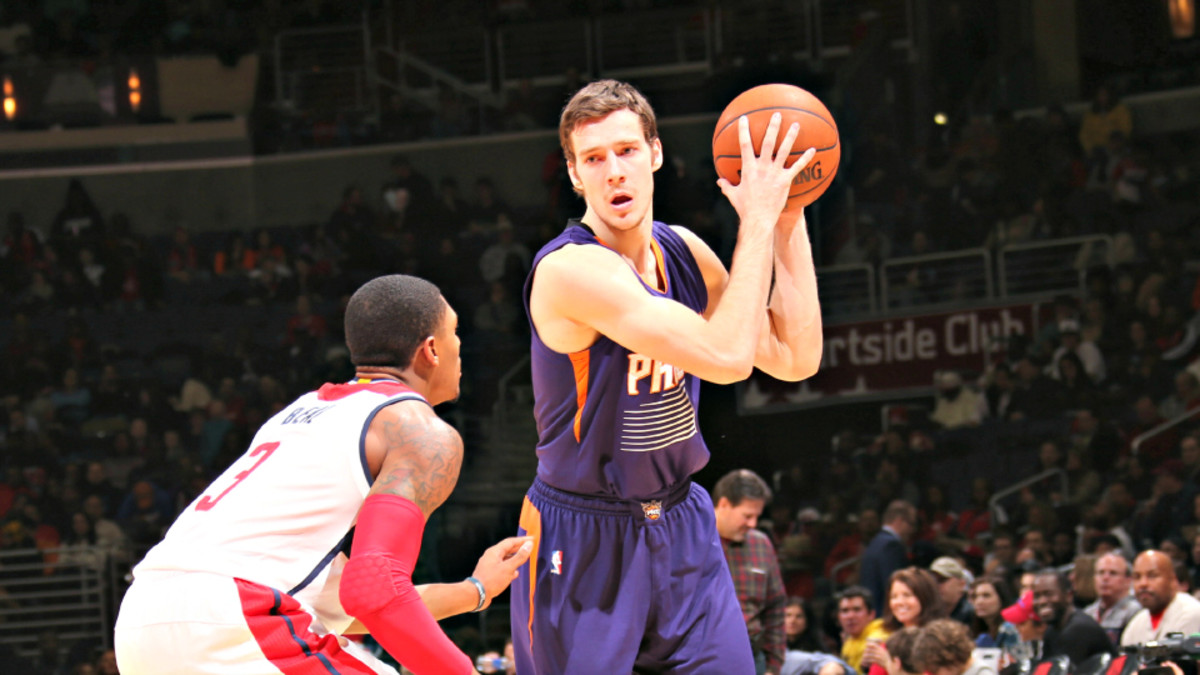
The Fundamentals: Why the Suns are struggling to take the next step
We find the Phoenix Suns more or less where last season left them. Tweaks to the roster haven't drastically altered the team's standing. Phoenix is still in the running for a playoff berth -- but only that. There are no greater aspirations to be indulged for a team aiming for incremental progress toward inclusion in the West's top eight.
Such simple goals serve Phoenix well. The Suns' roster is built for flexibility more than contention, its roots laid last season as the first step in a long climb. Those priorities remain, even for a team that won 48 games last year and projects to win 44 this season based on its 18-14 record. Phoenix plays good basketball. Yet already the Western Conference has created the sinking impression that good basketball won't be good enough – a cold, disheartening message to be sent some 32 games into the season.
That's life in the West. One would think that a team on a six-game winning streak might finally find a minute to exhale. The Suns, instead, are met by the Thunder storming up the standings and the Pelicans lying in wait. There is no respite from the pressures of winning day-to-day, as a particularly rough week could seal Phoenix's playoff fate for good. Just look at their ground lost from games 15 to 30:
Even with Kevin Durant sidelined by an ankle injury, Oklahoma City is a threat to supplant Phoenix any minute. A race against the Thunder is exactly that dire. In fact, a determination of the eight Western Conference playoff teams may have already been made with Phoenix and OKC locked into a virtual draw at this stage in the season and no other postseason candidate likely to be displaced. The Suns weren't going deep into the postseason to pose any kind of credible challenge. Yet the sheer depth of the West's ranks has to register as some kind of disappointment, given that no team was better prepared to push for a playoff spot in the event that any shook loose.
• MORE NBA: Suns up to No. 15 in latest NBA Power Rankings
Two complicating trends have since emerged. The first was predictable: Phoenix, while improved on paper to some degree with Isaiah Thomas' acquisition, failed to match improvement across the rest of the conference. Dallas, last season's No. 8 seed, built upon an already great offense and added veteran talent. Memphis, last season's No. 7 seed, quietly bolstered its wings and doubled down on a roster that killed when healthy last season. Golden State, last season's No. 6 seed, replaced its coach and in doing so has better utilized its most talented players. Even Portland and Houston have grown and stabilized, leaving Phoenix no quarter.
The other has been subtle, but damaging: Quietly, the Suns just aren't quite as good as they were a season ago. Their offensive output is down nearly two full points per 100 possessions despite playing one of the easier schedules in the league to date. That shift alone anchors Phoenix to mediocrity. With the Suns' team defense bumping up against the ceiling of this roster's capability, even the slightest offensive underperformance proves painful. Last season's team guarded just well enough to let its potent offense swing the balance. This year's outfit – while drawing from a nearly identical shot distribution in terms of range and placement as last year – just hasn't had the same effect.
SI's 10 favorite NBA moments of 2014
It's easy to blame Thomas, both as a variable added to a preexisting team and a subject of criticism for his ball-dominant play. The latter concerns are real, just as they were in Sacramento. One can see Thomas' teammates deflate when he shifts into over-dribbling mode, thereby bringing the Suns' revolving pick-and-roll offense to a halt. This is not optimal. Yet all of the big-picture indicators still project well for Thomas in the same way that they do for other talented ball-stoppers: What he does offensively is valuable enough to redeem most of his minutes. Lineups pairing Thomas with Eric Bledsoe have still fared brilliantly and those featuring Thomas and Goran Dragic have been solid. Thomas' approach may yet create larger stylistic problems and tradeoffs for Phoenix down the line, though at the moment it isn't strictly his doing that nags at the Suns' offense.
To the extent that there is some broader fault of Thomas in play, it may be his mere presence. Last year's Suns were Dragic's team by default. First he was the veteran in place to ease Bledsoe's transition to high-usage play. Later he made the team his own in Bledsoe's absence, in the process putting together a season worthy of All-NBA honor. This season's Suns have taken a palpable shift toward the democratic – not only in the balance between Dragic and Bledsoe, but in which guards Suns coach Jeff Hornacek has chosen to rely on in pressure situations. Of the three guards, Dragic plays the least in fourth quarters. Some of that is the natural byproduct of a substitution pattern that starts Dragic and spells him with Thomas. At least some other part, however, draws on the fact that Dragic isn't the same player he was a season ago.
That Dragic's outstanding performance last season defied any career precedent suggested some capacity for regression. Yet even then, there was no reason to think that Dragic's pick-and-roll game would fade as suddenly and dramatically as it has this year. According to Synergy Sports Technology, Dragic has scored points out of the pick-and-roll (via field goal or free throw) on just 36.2 percent of his attempts to do so. His free throw rate, in particular, has plummeted; overall Dragic is getting to the line less than half as often as he did last season despite operating out of the same fundamental system.
We haven't seen quite the same pep from Dragic this year, and that's a problem. Dragic is at his best when he's loose. Freewheeling point guards don't tend to play well when looking over their shoulder, and something in the new dynamic of this team has Dragic playing anxiously. He's more openly deferential. The bold moves off the bounce – the fakes and dekes that few other guards seem to even try – just aren't there. This year's Dragic is still a version of the same player. His style is just more restrained and his performance, as a result, more subdued.
Photos: NBA Christmas Day sneakers
Pinning that causality on any factor in particular would require far more evidence than is available. So instead we're left with a tangle to unwind and only a limited sense of how certain variables influence one another. We know Dragic isn't quite himself, if not why; we know that Thomas gives and takes away, though the degree of both is arguable; we know that Channing Frye is missed on some level, even relative to a career-year Markieff Morris; we know that Phoenix's supplementary offense (free throws and offensive rebounds) has dwindled to worrisome levels; and we know that to this point that sum has not been sufficient. The Suns have their moments in which their balance seems right again – their second-half performance in their latest win over Dallas a prime example. Yet from a wider view we see the team as teetering, never quite able to steady itself in the way it did last season.
There's time yet for Phoenix to wobble its way into better balance, but doing so seems improbable against an increasingly competitive schedule. The Suns have three remaining games against the Warriors, three against the Spurs, three against the Rockets, and four against the Blazers, to say nothing of other difficult matchups around the conference and the league. The most trying, though, may be the three games remaining against the Thunder – all of which could feature a healthy Westbrook and Durant.
At this point the Suns should have the the kind of cushion to weather a scheduled surge of quality opponents. Instead Phoenix split its games against sub-.500 teams while taking a handful of odd losses at home. It outscored opponents in only a single quarter on average. Reality will set in soon if it hasn't already: While this season matters as much as every phase of Phoenix's construction, any hope of making the playoffs hinges on an ascent we have yet to see and couldn't reasonably expect.































